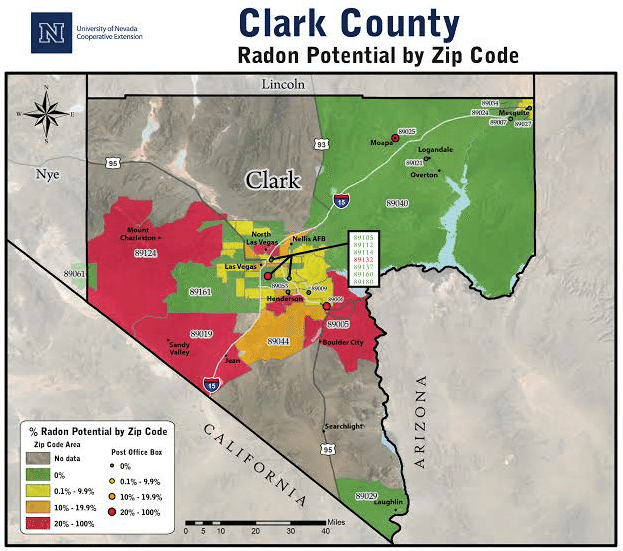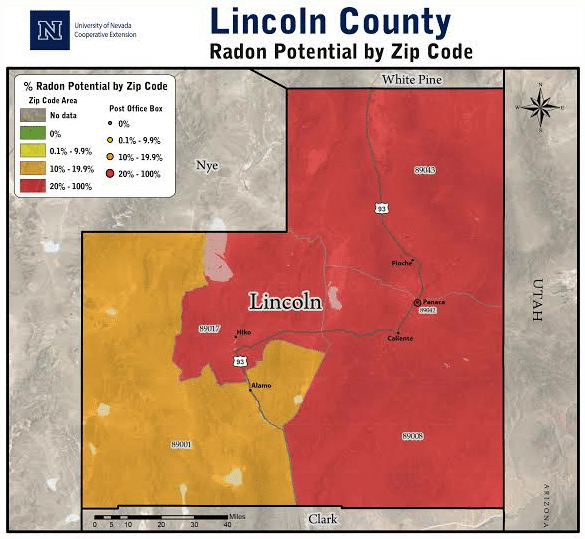University of Nevada Cooperative Extension offers free test kits and free radon education presentations in Southern Nevada
LAS VEGAS – January is National Radon Action Month, and University of Nevada Cooperative Extension’s Radon Education Program is offering educational presentations at various locations in Southern Nevada.
Free radon test kits will be available at the presentations, but for those who cannot attend a presentation, free test kits are also available through Feb. 29 at University of Nevada Cooperative Extension offices and partner offices statewide.
INFORMATION: www.RadonNV.com, or call 888-RADON10 (888-723-6610).
 Scheduled presentations for Las Vegas are:
Scheduled presentations for Las Vegas are:
- Jan. 30 – Centennial Hills Library, 6711 N. Buffalo Drive, at 10:30 a.m.
- Jan. 30 – Clark County Library, 1401 E. Flamingo Road, at 2 p.m.
- Jan. 31 – West Charleston Library, 6301 W. Charleston Blvd., at 10:30 a.m.
- Jan. 31 – Sunrise Library, 5400 E. Harris Ave., at 1:30 p.m.
- Feb. 1 – Rainbow Library, 3150 N. Buffalo Drive, at 6 p.m.
Scheduled presentation in Caliente:

- Feb. 2 – Caliente Fire Hall, next to Rainbow Canyon Motel at 880 Front St. on U.S. 93, Caliente, at 7 p.m.
Radon is a naturally occurring, radioactive gas that is colorless, odorless and tasteless. It comes from the ground and can accumulate in homes, raising the risk of lung cancer.
The U.S. Environmental Protection Agency (EPA) estimates 21,000 Americans die each year from radon-caused lung cancer, killing more people than secondhand smoke, drunk driving, falls in the home, drowning or house fires.
In Nevada, one in four homes tested show radon concentrations at or above the EPA action level. According to experts, living in a home with radon concentrations at the action level poses as much risk of developing lung cancer as smoking about half a pack of cigarettes a day.
The risk of radon-caused lung cancer can be reduced. A simple three-day test can determine if a house has a radon problem, and winter is an ideal time to test a home for radon. If radon problems are found, they can be fixed. Find out more and get a free test kit at a presentation in your community:
The Nevada Radon Education Program is a program of University of Nevada Cooperative Extension and is funded by the Nevada Division of Public and Behavioral Health. Since the program began in 2007, more than 21,000 homes have been tested in Nevada.
Cooperative Extension, the EPA and the Nevada Division of Public and Behavioral Health urge all Nevadans to get their homes tested for radon. For more information, visit the Nevada Radon Education Program website at www.RadonNV.com, or call the Radon Hotline at 888-RADON10 (888-723-6610).

